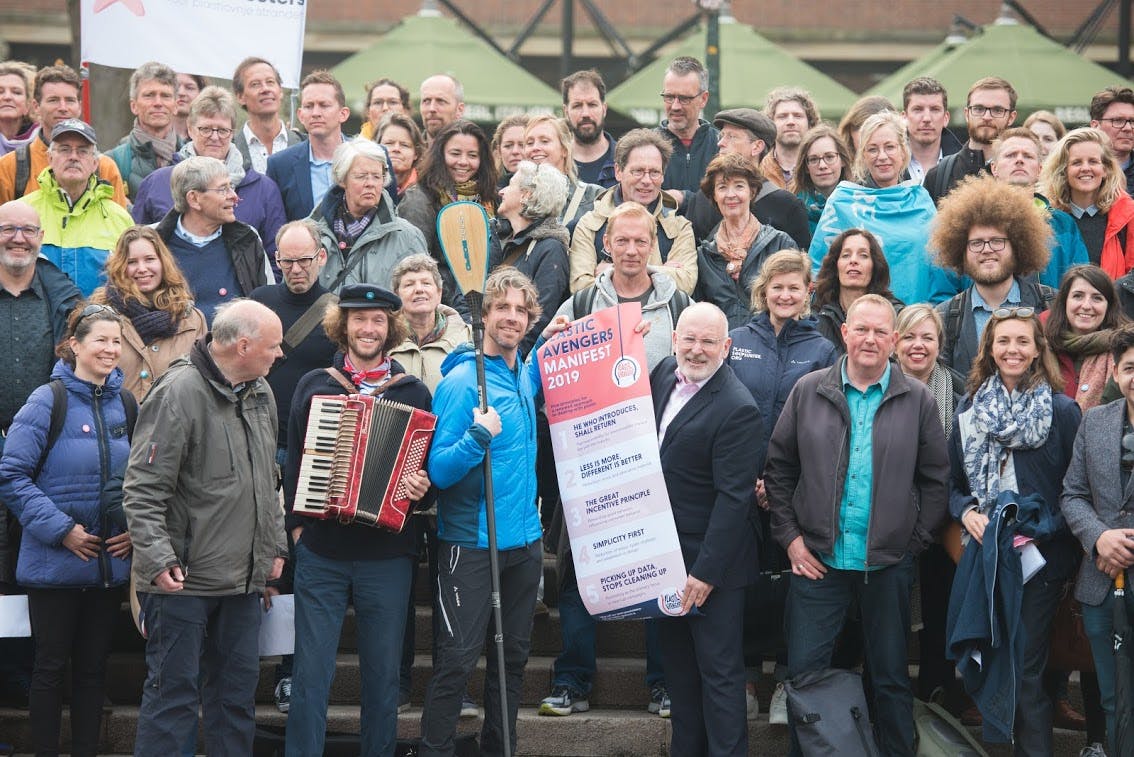The EU, with Vice President Frans Timmermans leading the way, is working to reduce plastic litter, cause of the plastic soup. In early 2018, we were there when Frans Timmermans explained his plan.
Plastic litter at the beaches
On July 3, EU countries will introduce the Single-use Plastics Directive (SUP Directive). This aims at reducing the disposable plastics that pollute the beaches the most and thus contribute the to the plastic soup.
The measure focuses on single-use plastics: the 10 most commonly found disposable plastics at beaches make up 43% of marine litter (fishing gear another 27%). Some will be banned, others will have a label about plastic in the product, yet others will require industry to contribute to collection and cleanup.


